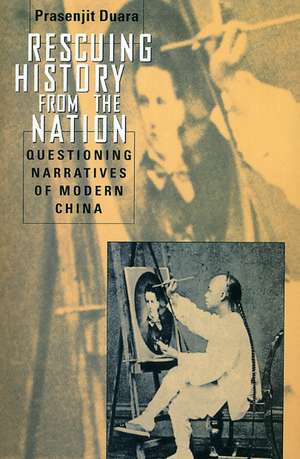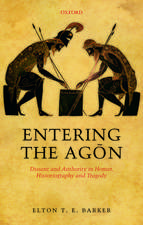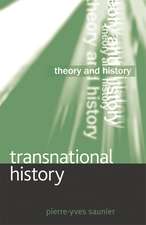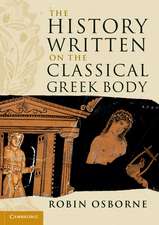Rescuing History from the Nation: Questioning Narratives of Modern China
Autor Prasenjit Duaraen Limba Engleză Paperback – 1997
Prasenjit Duara offers the first systematic account of the relationship between the nation-state, nationalism, and the concept of linear history. Focusing primarily on China and including discussion of India, Duara argues that many historians of postcolonial nation-states have adopted a linear, evolutionary history of the Enlightenment/colonial model. As a result, they have written repressive, exclusionary, and incomplete accounts.
The backlash against such histories has resulted in a tendency to view the past as largely constructed, imagined, or invented. In this book, Duara offers a way out of the impasse between constructionism and the evolving nation; he redefines history as a series of multiple, often conflicting narratives produced simultaneously at national, local, and transnational levels. In a series of closely linked case studies, he considers such examples as the very different histories produced by Chinese nationalist reformers and partisans of popular religions, the conflicting narratives of statist nationalists and of advocates of federalism in early twentieth-century China. He demonstrates the necessity of incorporating contestation, appropriation, repression, and the return of the repressed subject into any account of the past that will be meaningful to the present. Duara demonstrates how to write histories that resist being pressed into the service of the national subject in its progress—or stalled progress—toward modernity.
The backlash against such histories has resulted in a tendency to view the past as largely constructed, imagined, or invented. In this book, Duara offers a way out of the impasse between constructionism and the evolving nation; he redefines history as a series of multiple, often conflicting narratives produced simultaneously at national, local, and transnational levels. In a series of closely linked case studies, he considers such examples as the very different histories produced by Chinese nationalist reformers and partisans of popular religions, the conflicting narratives of statist nationalists and of advocates of federalism in early twentieth-century China. He demonstrates the necessity of incorporating contestation, appropriation, repression, and the return of the repressed subject into any account of the past that will be meaningful to the present. Duara demonstrates how to write histories that resist being pressed into the service of the national subject in its progress—or stalled progress—toward modernity.
Preț: 270.14 lei
Nou
Puncte Express: 405
Preț estimativ în valută:
51.69€ • 53.97$ • 42.78£
51.69€ • 53.97$ • 42.78£
Carte tipărită la comandă
Livrare economică 04-18 aprilie
Preluare comenzi: 021 569.72.76
Specificații
ISBN-13: 9780226167220
ISBN-10: 0226167224
Pagini: 286
Dimensiuni: 152 x 229 x 23 mm
Greutate: 0.45 kg
Ediția:1
Editura: University of Chicago Press
Colecția University of Chicago Press
ISBN-10: 0226167224
Pagini: 286
Dimensiuni: 152 x 229 x 23 mm
Greutate: 0.45 kg
Ediția:1
Editura: University of Chicago Press
Colecția University of Chicago Press
Notă biografică
Prasenjit Duara is chair of the department of history at the University of chicago. He is the author of Culture, Power, and the State: Rural North China, 1900-1942 and Sovereignty and Authentcity: Manchukuo and the East Asian Modern.
Cuprins
Acknowledgments
Introduction
1: Linear History and the Nation-state
2: Bifurcating Linear Histories in China and India
3: The Campaigns against Religion and the Return of the Repressed
4: Secret Brotherhood and Revolutionary Discourse in China's Republican
Revolution
5: The Genealogy of Fengjian or Feudalism: Narratives of Civil Society and State
6: Provincial Narratives of the Nation: Federalism and Centralism in Modern China
7: Critics of Modernity in India and China
Conclusion
References
Index
Introduction
1: Linear History and the Nation-state
2: Bifurcating Linear Histories in China and India
3: The Campaigns against Religion and the Return of the Repressed
4: Secret Brotherhood and Revolutionary Discourse in China's Republican
Revolution
5: The Genealogy of Fengjian or Feudalism: Narratives of Civil Society and State
6: Provincial Narratives of the Nation: Federalism and Centralism in Modern China
7: Critics of Modernity in India and China
Conclusion
References
Index












